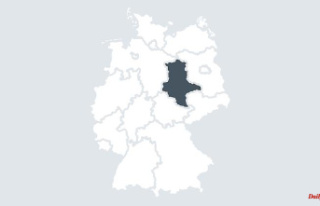The new elections following the resignation of Italy's Prime Minister Mario Draghi could result in a shift to the right in Europe's third largest economy. "The center-right is ready to win the September 25 election," said Matteo Salvini of the right-wing populist League late Thursday evening. In fact, the chances are not bad: Current polls see the right-wing extremist Fratelli d'Italia with party leader Giorgia Meloni at the top. With the Lega and Silvio Berlusconi's Forza Italia, they could possibly form a governing majority in parliament - and thus, in view of the economic crisis and the war in Ukraine, again shake a pillar of the EU that has only just been stabilized.
But the situation is still confusing, the voting debacle for the non-party Prime Minister Draghi in the Senate on Wednesday and the fall of his cabinet are too fresh for clear forecasts. Even within the coalition parties that refused to support Draghi in parliament, there are resignation movements. The minister responsible for southern Italy, Mara Carfagna, declared that she wanted to distance herself from the conservative Forza Italia. Her party colleague Renato Brunetta, Minister for Public Administration, wants to leave the party of former Prime Minister Berlusconi. And in parliament, too, the first deputies changed sides out of frustration.
Actually, the next parliamentary elections would not have been due until spring 2023, but as so often in the past, the Italians have to go to the polls early. Draghi's government will remain in office until there is a new prime minister. But when that will be is unclear. The coalition negotiations could drag on depending on the outcome of the election. According to experts, there could possibly be a new government in November.
The fact that the election campaign has now actually started will also make it difficult for the incumbent government to get further reforms through parliament. And they are urgently needed: Italy needs solutions in the fight against inflation, the energy crisis and the effects of the drought. The EU also expects progress before Rome can siphon billions more from the Brussels subsidy pots.
"I think Italy still needs Draghi," said Foreign Minister Luigi Di Maio. And with that he should not only be speaking from the soul of many of his 60 million compatriots. The Prime Minister, who acted comparatively quietly and efficiently, has also gained great respect abroad, where previous governments gave a rather chaotic picture.
The former head of the European Central Bank got the heavily indebted country back on track after taking office in February 2021. For example, he secured Italy temporary access to EU aid for reconstruction after the corona pandemic, which the previous coalition under Giuseppe Conte had failed to do. But this success would only be an intermediate stage if no further steps followed.
Conte, who was still independent at the time, later became head of the left-wing populist Five Star Movement, which is largely responsible for the current government crisis. The stars left Draghi hanging in a Senate confidence vote last week, prompting the 74-year-old Roman to tender his resignation. Head of state Sergio Mattarella refused, but by Wednesday at the latest, the measure was full: three governing parties - the Five Stars, the right-wing Lega and Forza Italia - refused to trust Draghi, so that he saw no other way than again to resign.
This time Mattarella gave in too. Italy's President decreed the dissolution of the two chambers of Parliament. In the middle of the holiday season, people in Italy are now faced with restless election campaign weeks.












